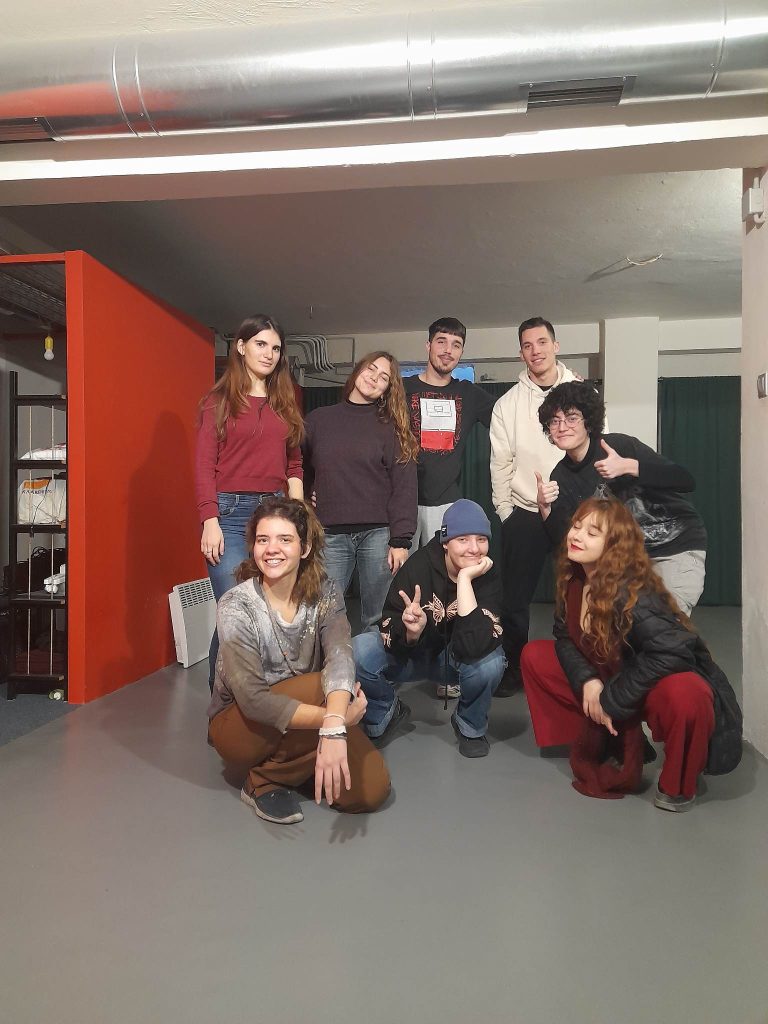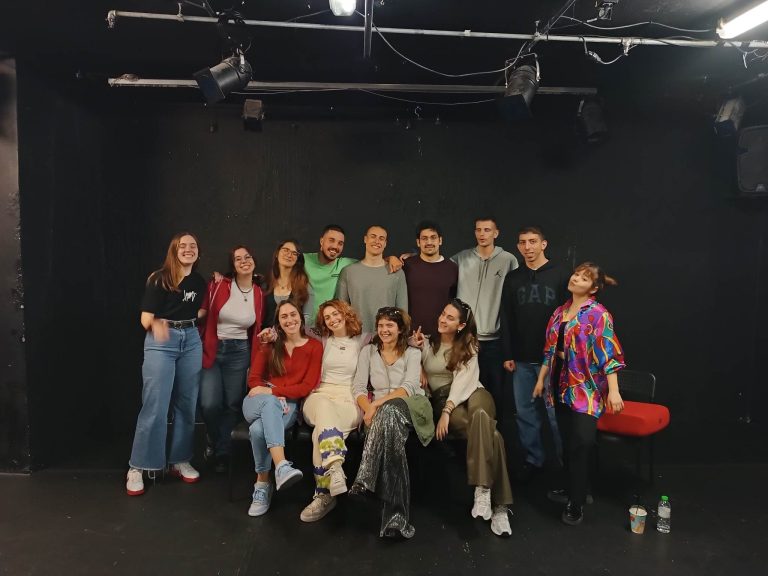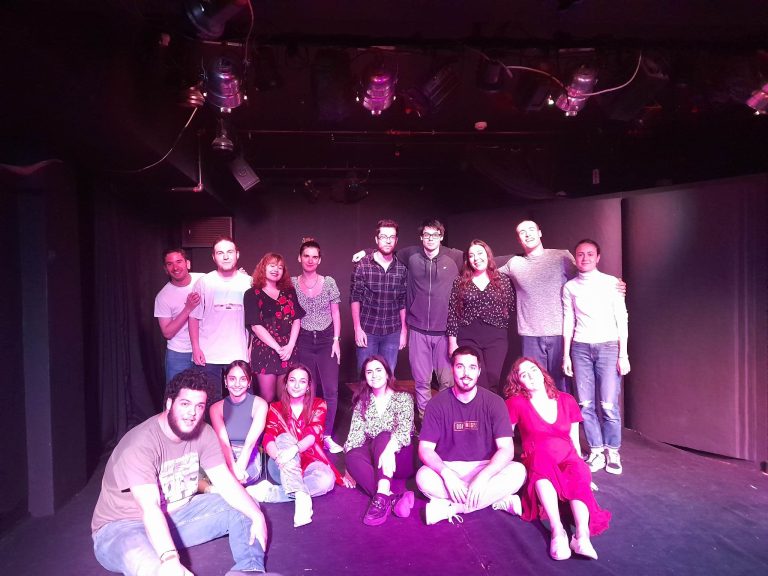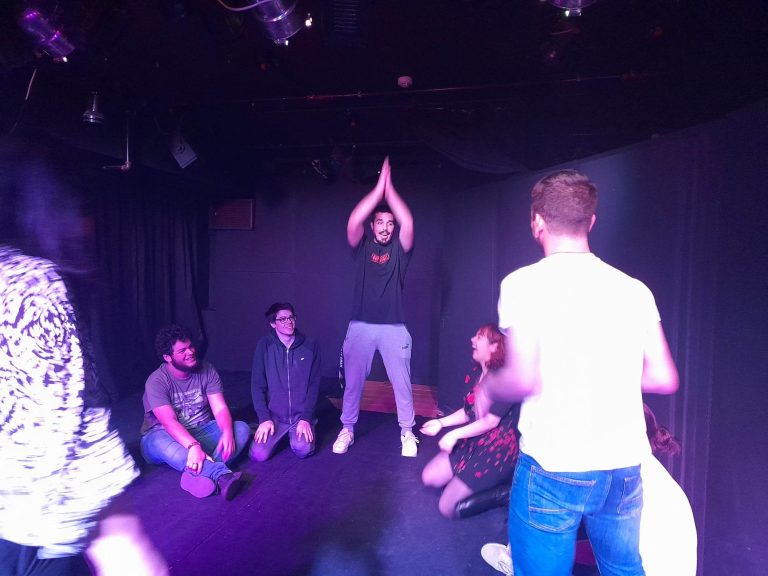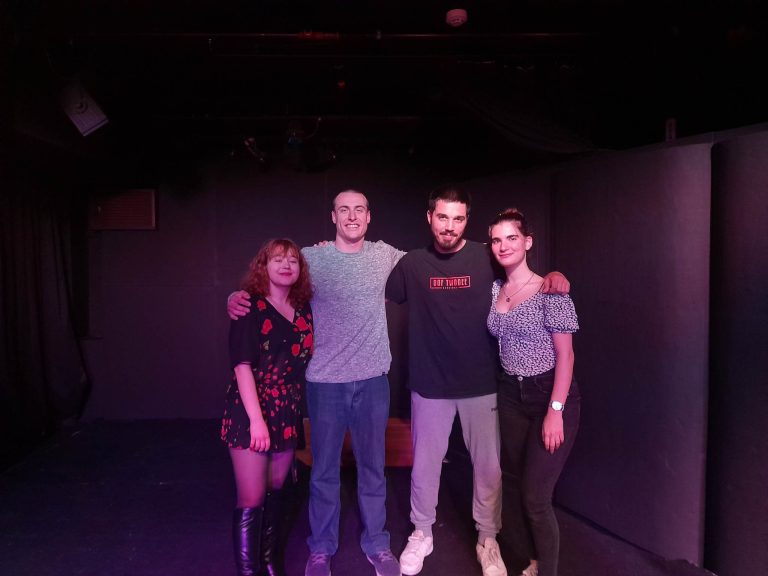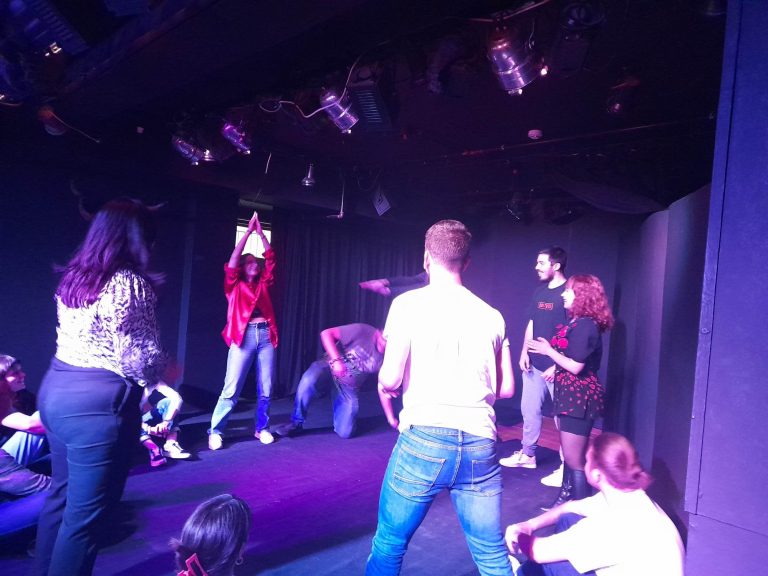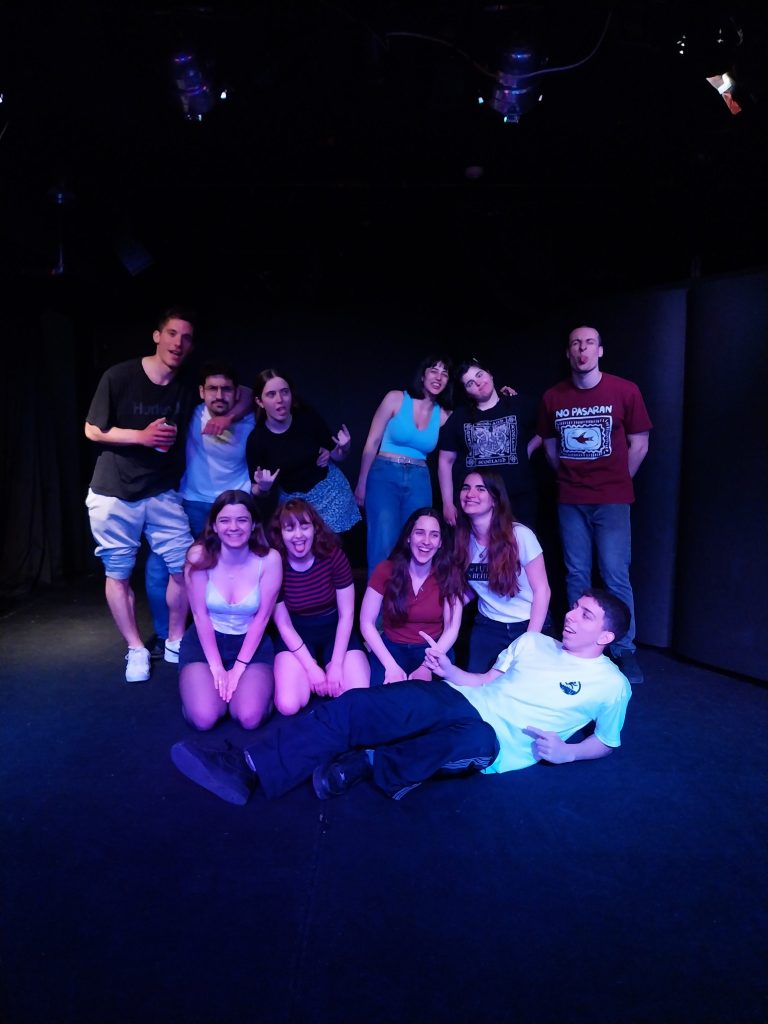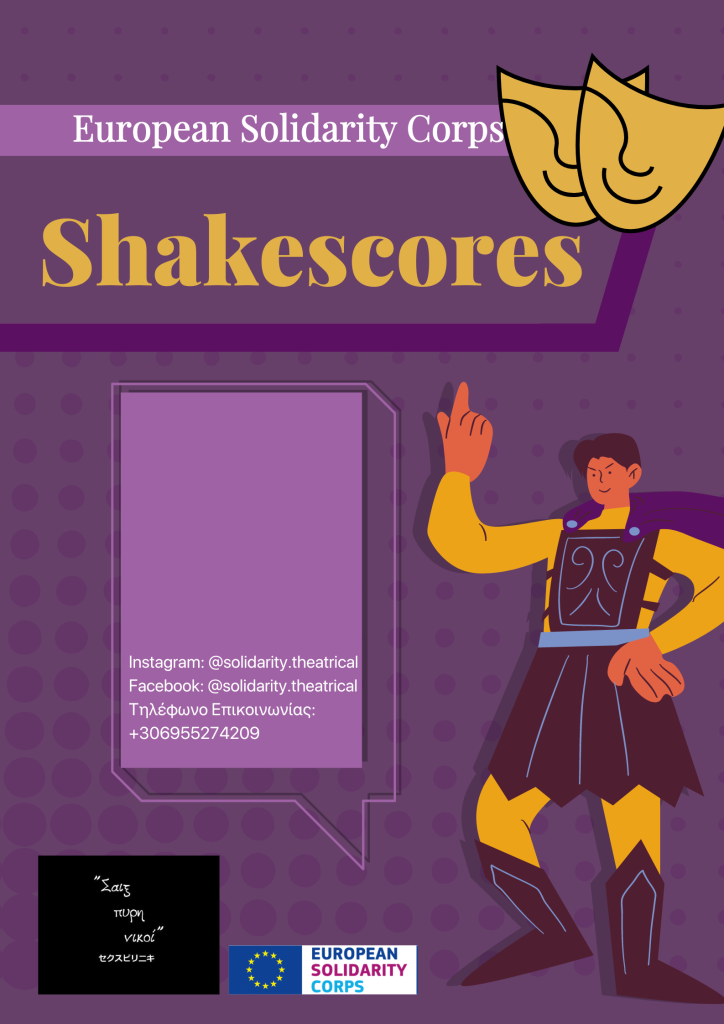
Shakecores' Effort for Common Solidarity
The project aims to address social exclusion and racism towards immigrants and refugees by utilizing theater as a powerful tool for fostering social awareness and education. Over a six-month period, the program focuses on organizing and implementing various activities designed to build team cohesion, explore expressive means, and culminate in the creation of a theatrical story. By engaging the local community in these cultural activities, the project seeks to instill a profound understanding of the importance of individual-level changes, inclusion of minorities, and the elimination of racial discrimination. Anticipated short-term outcomes include visible improvements in social skills and self-expression, leading to the integration of refugees and immigrants into Greek society while simultaneously limiting instances of racism and marginalization. Ultimately, the project aims to bring about a significant and lasting positive change in the social environment, fostering solidarity and a sense of social responsibility within the community.
OBJECTIVES
The primary objective of our project is to raise social awareness and education as a means to reduce racist behaviors towards immigrants and refugees. We aim to achieve this by focusing on the local community and its members on an individual level. The project is designed to address significant social problems, emphasizing social exclusion, racism, and the isolation of social groups based on cultural heritage.
This includes:
- Promote Social Inclusion: Facilitate the integration of refugees and immigrants into Greek society, addressing issues of social exclusion resulting from language and cultural differences.
- Cultural Exchange and Understanding: Use theater games to provide a platform for refugees and immigrants to engage with Greek culture, fostering mutual understanding and appreciation.
- Enhance Social Skills: Through theater activities, aim to enhance the social skills of participants, enabling them to navigate social interactions more effectively in their new environment.
- Non-Verbal Communication: Introduce and practice non-verbal communication techniques within the context of theater games, aiding participants in expressing themselves and understanding others in a multicultural setting.
- Emotional and Spiritual Development: Focus on the emotional and spiritual development of refugees and immigrants, providing them with tools to cope with the challenges of adapting to a new culture.
- Community Integration: Contribute to the reception and integration of refugees and migrants into Greek and wider European culture, ultimately fostering a sense of belonging and community.
- Cultural Acclimatization: Help participants acclimatize to Greek society by offering them exposure to cultural activities, promoting a sense of welcome and safety in their new environment.
- Building Self-Confidence: Utilize drama activities to boost the self-confidence of participants, empowering them to overcome potential challenges and obstacles in their daily lives.
- Targeted Support for Young Immigrants: Specifically focus on addressing the acclimatization challenges faced by young people of non-Greek origin, providing them with the skills and support needed to navigate and thrive in Greek society.
- Contribute to Wider Social Context: Integrate theater into a broader social context, leveraging the passion of the theater group to make a positive impact on the community by addressing issues of social integration and cultural diversity.
ACTIVITIES
The project’s activities were meticulously planned and executed to facilitate the integration of refugees and immigrants into society. In the first month, the team dedicated their efforts to organizing the program, strategically laying the foundation for subsequent activities. The second month focused on introductory activities, fostering a sense of camaraderie among participants, and creating a collaborative and safe environment. As the project progressed into the third and fourth months, each member delved into understanding basic human expressive means employed in acting, encompassing emotions and body language. The fifth month witnessed the implementation of improvisation and storytelling classes, encouraging participants to collaboratively craft a unique theatrical story based on their collective experiences. The concluding sixth month marked the detailed sharing of program activities and results, culminating in impactful theatrical performances derived from the team’s creative narrative developed in the preceding month. Throughout, the team demonstrated a commitment to the project’s objectives, ensuring a comprehensive and engaging journey for all involved.
ACHIEVEMENTS
The project had both short-term and long-term achievements. In the short term, participants experienced visible improvements in social skills, self-expression, and self-exploration. The integration of refugees and immigrants into Greek society contributed to limiting racist cases and marginalization, fostering a sense of security and acceptance among minority populations.
IMPACT ON SOCIETY
The project brought real and significant change in the social environment of the local community. Beyond individual benefits, it encouraged solidarity, a sense of the common good, and social responsibility among community members. Ultimately, the project contributed to the broader goal of eliminating racial discrimination in Greek and European societies.
RESULTS
By implementing the program, we created a positive impact at various levels. The project raised awareness among the local community and young people about social exclusion and marginalization phenomena. Through cultural activities, we instilled the importance of individual-level changes, emphasizing the inclusion of all minorities in society. Finally, the program targeted real change, addressing the eradication of racial discrimination in our communities.
MONTH 1
– Preparation: Organize activities and allocate spaces – Implementation: Conduct information campaign, select participants – Evaluation: Assess the success of the planning phase – Sharing of Results: Inform the wider public about the program
MONTH 2
– Preparation: Design team-building activities – Implementation: Conduct team games for participants to know each other – Evaluation: Assess team cohesion and comfort – Sharing of Results: Emphasize the importance of team cohesion for a safe and creative environment
MONTH 3
– Preparation: Design theatrical games based on Augusto Boal’s experiential method – Implementation: Conduct activities for emotional exploration – Evaluation: Assess participants’ emotional engagement – Sharing of Results: Discuss and reflect on emotional experiences, promote respect for diverse feelings
MONTH 4
– Preparation: Design theatrical games focusing on body acceptance – Implementation: Conduct activities to appreciate the human body and develop non-verbal communication – Evaluation: Assess participants’ self-esteem and mutual respect – Sharing of Results: Discuss the importance of body acceptance and effective non-verbal communication
MONTH 5
– Preparation: Explore improvisational theater principles and story development stages – Implementation: Conduct classes on improvisation and storytelling – Evaluation: Assess participants’ ability to express ideas creatively – Sharing of Results: Collaboratively create a theatrical story based on experiences from previous months
MONTH 6
– Dissemination: Share program results through theatrical performances in local community spaces – Preparation: Plan and organize theatrical performances – Implementation: Conduct theatrical performances, calculate duration and number of shows – Evaluation: Collect feedback from participants, audience, and team – Sharing of Results: Discuss feelings, opinions, and suggestions, and include them in the final program evaluation form
